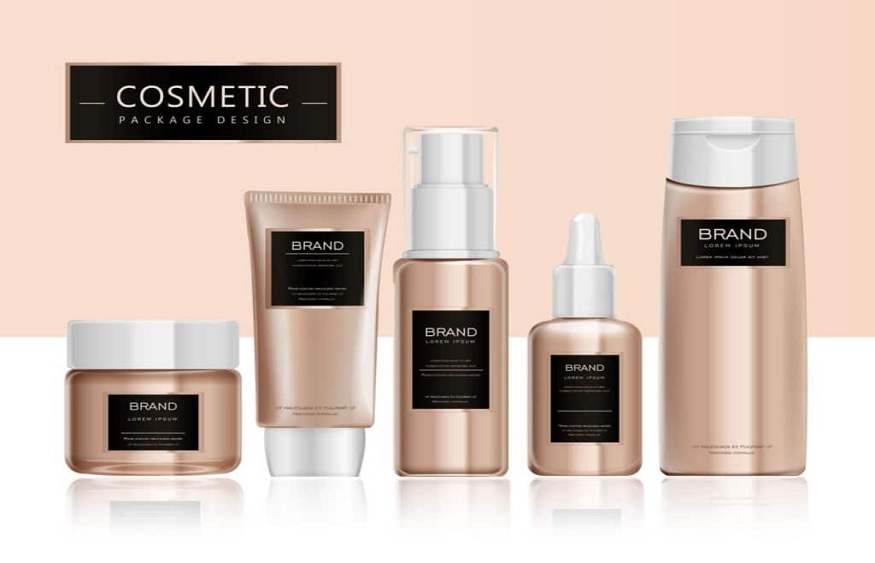Selecting a cosmetic label firm is one of the crucial factors to consider when starting a successful skincare private label or cosmetics brand. The labels on the cosmetic items are essential for drawing customers, communicating important information, and creating company brand identity. With an emphasis on sticker printing and related issues, let’s explore the crucial elements to consider when choosing a cosmetic labels company.

Printing Labels of High Quality
Label printing quality should be considered when selecting a cosmetic label supplier. Labels should not only be visually appealing but also strong and resilient to a variety of environmental factors. They should resist fading, smudging, and peeling because these qualities could harm the reputation of the skincare private label or cosmetics line.
Choices for Personalization
The secret to striking out in the cutthroat cosmetics market is customization. Consider whether the manufacturer of cosmetic labels provides a variety of customizing possibilities. Can they accommodate various label materials, sizes, and shapes? Customization guarantees that the labels match the specifics of their products and their brand’s distinctive character.
Regarding Regulations
Regulations governing the labeling of cosmetics must be followed. Ensure the business creating the cosmetic labels knows the local rules governing cosmetic labeling. Ingredient lists, warning labels, and other essential information are included here. Please comply to avoid legal problems and harm the reputation of the company brand.
Technology for printing
Labels with extraordinary clarity and detail are now achievable thanks to developments in printing technology. Ask the cosmetic label manufacturer about the printing process they employ. The appearance and legibility of company labels change when printed in high resolution.
Stickiness of labels
Label adhesive is essential. The cosmetic goods’ labels should stick to them firmly and be simple to apply without leaving behind residue or tarnishing the package. Labels that peel off due to poor adhesiveness appear amateurish.
Reaction Time
The cosmetics sector frequently operates on a tight deadline. They must ensure that the manufacturer of cosmetic labels can match company dates for production. Scheduling for product launches or distribution can be affected by sticker printing company delays.
Budget and Price
For most skincare private label and cosmetics companies, budget restrictions are a fact of life. Compare prices from various manufacturers of cosmetic labels to discover one that strikes a balance between quality and cost. Remember that purchasing high-quality labels is an investment in the company’s success.
Credibility and References
Obtain information about the reputation of the cosmetic label manufacturer. Look for feedback and endorsements from companies they have cooperated with. Speaking with references directly might give important information about their dependability and the caliber of their job.
Sustainable Development Factors
As customer awareness of the environment rises, they are drawn more and more to eco-friendly products. If sustainability is essential to one skincare private label or cosmetics brand, find out if the manufacturer of the cosmetic labels is committed to using environmentally friendly printing methods and materials.
Support and Communication with Customers
Throughout the label design and printing process, effective communication is crucial. Pick a cosmetic label firm that will work directly with them and is attentive to their needs. The accurate translation of company concepts onto the labels is ensured via clear communication.
Samples and a portfolio
Examine the company’s historical label production portfolio. To evaluate the caliber of their work in person, ask for samples. This phase helps determine whether their aesthetic sensibilities and skills complement your business.
Long-Term Collaboration
Think about the possibility of long-term cooperation with the manufacturer of cosmetic labels. A long-lasting connection might result in simpler operations and a better comprehension of the changing requirements for your business.
Essential Components of a Long-Term Partnership
Whether in business, relationships, or any other environment, long-lasting, practical, durable collaborations share a few things. It is crucial to have the following factors in place:
Common Goals and Values:
Partnerships are most successful when both sides share the same beliefs, guiding principles, and long-term goals. It is simpler to collaborate toward common objectives when there is a feeling of direction and alignment provided by a shared vision and purpose.
Mutual respect
Respect must be exhibited for the thoughts, ideas, and contributions of others. A long-term collaboration results in a wholesome and effective working relationship when both sides are appreciated and their opinions are valued.
Consistency and reliability:
Trust is the foundation of any successful long-term relationship. Both parties must have confidence in each other’s honesty, skill, and dedication. How much trust a person may earn and keep over time depends on their track record of keeping their word and living up to expectations.
Benefits that Everyone Enjoys:
A partnership needs to benefit both parties in order to succeed. Both sides should benefit from the collaboration, whether it is for shared financial gain, professional advancement, or resource access. Benefits must be distributed equitably and equally.
Techniques for Resolving Conflicts
Disputes inevitably arise in partnerships, but how those disputes are resolved will decide whether the partnership endures. Developing conflict-resolution abilities, such as active listening, compromise, and a desire to look for common ground, is essential.
A commitment to sustainability and continuity:
Consistency and an unrelenting dedication to the success of the collaboration are essential for long-term success. Consistent effort, commitment, and focus are required to create and keep the relationship throughout time.
Written contracts and agreements
Precise written agreements or contracts can offer a framework for comprehending expectations, obligations, and resolving disagreements, depending on the circumstances. Written agreements safeguard the rights of both parties.
Resilience and conflict resolution
It is essential to be prepared to handle emergencies and unforeseen difficulties. A great relationship can withstand storms if it has contingency plans and a resilient mindset that includes tolerating setbacks and learning from them.d growing from them a strong relationship can weather storms.
Continued Development
Partners should be equally dedicated to continuous development. The relationship will remain dynamic and robust if the partnership’s performance is routinely examined, areas for development are identified, and required adjustments are made.
Conclusion
Your pick of the top cosmetic label supplier can strongly impact the success of your skincare private label or cosmetics brand. Prioritizing factors like label quality, customizability options, legal compliance, and communication can help you make an informed choice. Remember that your product labels convey more than aesthetics; they also reflect your business’s character and commitment to excellence. An investment in the cosmetics company’s long-term success is made by trying to select the best cosmetic label supplier.





